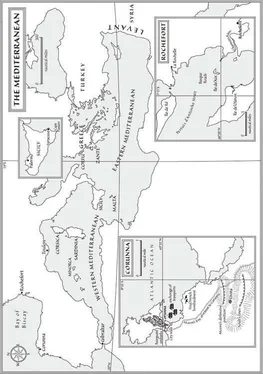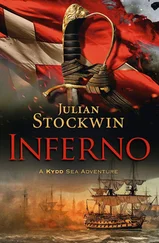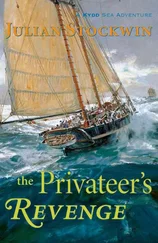Julian Stockwin - The Iberian Flame - Thomas Kydd 20
Здесь есть возможность читать онлайн «Julian Stockwin - The Iberian Flame - Thomas Kydd 20» весь текст электронной книги совершенно бесплатно (целиком полную версию без сокращений). В некоторых случаях можно слушать аудио, скачать через торрент в формате fb2 и присутствует краткое содержание. Год выпуска: 2018, Издательство: Hodder & Stoughton, Жанр: Старинная литература, на английском языке. Описание произведения, (предисловие) а так же отзывы посетителей доступны на портале библиотеки ЛибКат.
- Название:The Iberian Flame: Thomas Kydd 20
- Автор:
- Издательство:Hodder & Stoughton
- Жанр:
- Год:2018
- ISBN:нет данных
- Рейтинг книги:3 / 5. Голосов: 1
-
Избранное:Добавить в избранное
- Отзывы:
-
Ваша оценка:
- 60
- 1
- 2
- 3
- 4
- 5
The Iberian Flame: Thomas Kydd 20: краткое содержание, описание и аннотация
Предлагаем к чтению аннотацию, описание, краткое содержание или предисловие (зависит от того, что написал сам автор книги «The Iberian Flame: Thomas Kydd 20»). Если вы не нашли необходимую информацию о книге — напишите в комментариях, мы постараемся отыскать её.
The Iberian Flame: Thomas Kydd 20 — читать онлайн бесплатно полную книгу (весь текст) целиком
Ниже представлен текст книги, разбитый по страницам. Система сохранения места последней прочитанной страницы, позволяет с удобством читать онлайн бесплатно книгу «The Iberian Flame: Thomas Kydd 20», без необходимости каждый раз заново искать на чём Вы остановились. Поставьте закладку, и сможете в любой момент перейти на страницу, на которой закончили чтение.
Интервал:
Закладка:
The precise point at which it can be said with certainty that the long Peninsular War had its beginning I do believe can be defined, depending on your point of view. It is either the moment at which Bonaparte decided to turn an ally into a victim and thereby brought upon himself the tribulations that followed, or the point at which the British first landed in support of the Iberians, never to leave until their work was done. I tend to the latter – and not only because it was the Royal Navy that did the deed. The landing by Royal Marines at Figueira da Foz until relieved by Wellesley’s landings, depicted here, was indeed Britain’s first permanent foothold on the peninsula, and the navy, guarding the sea-lanes as efficiently as it did, was able to keep it so until victory was gained.
The terms of the highly questionable Convention of Cintra, so reviled in England, were actually brought about by Kellermann, the astute French negotiator at the talks. Keeping his knowledge of English hidden from Burrard, he learned of the general’s pressing need for a tangible victory and held out for outrageous conditions, including the transport of his entire army, with its flags, honours and loot intact, back to France to continue his war.
It is not so well known that Bonaparte himself came to confront the British intervention, and it is piquant to think that, but for Wellesley’s junior status, it would have been him, not Moore, who would have faced him and his juggernaut army. As it was, Bonaparte noted the headlong retreat with much satisfaction but fatally left the final destruction details to his marshals, abandoning the Spanish winter and mountains for Paris. Soult was no match for Moore, and history took its course with Britain’s only effective army preserved for another day.
The passage back to England for the army through the winter storms of Biscay was a hard one, officers with drawn swords posted to stop the mass of men in the over-packed transports moving about in the savage gales. When the exhausted, dirty, ragged soldiers staggered ashore, people ran from them in horror but at last, after their inhuman march, they had got their rest.
Some would deride Corunna as another Dunkirk, a defeat touted as a triumph. Yet in both cases it was only territory that was lost, the precious trained men saved for another day, and at Corunna their cannon as well, both owing all to Britannia’s mastery of the seas. What followed the death of this hero, Moore, like Wolfe before Québec, was a full-hearted demand by the British people for support of any kind to the Iberians, resulting in a confused alliance with the Spanish patriots. In token, Portland’s government thought to make the magnanimous gesture of returning to Spain their arms from the Tower of London captured from the Spanish Armada. Wellesley doggedly remained in Iberia, erecting the impregnable defences of the Lines of Torres Vedras at Lisbon to become the bridgehead for his later advances. Eventually he admitted reluctantly that without the navy his victories would have been impossible.
To the many who assisted me in the research for this book I am deeply grateful. My appreciation also goes to my agent Isobel Dixon, my editor at Hodder & Stoughton Oliver Johnson, designer Larry Rostant for another stunning cover, and copy editor Hazel Orme. And, as always, my heartfelt thanks to my wife and literary partner, Kathy.
And to those interested in what the future holds for Thomas Kydd, rest assured there are more adventures to come …
Glossary

aviso
small craft employed for fleet communications, not combat
binnacle
wooden case protecting the compass with a light at night
blashy
blustery, rainy weather
bobbery
high jinks
bonne bouche
sweetmeat
braxy
an inflammatory disease of sheep
bumboat
a boat carrying provisions or small merchandise out to ships on speculation
cabal
a clandestine association for purposes not always benign
carcass
a shell of iron containing incendiary materials
cartel
an official agreement covering, for instance, the exchange of prisoners
catching crabs
an oar plied clumsily that catches the water instead of a smooth in and out pull
conjunct
term used in Kydd’s day for amphibious operations
Cortes
a form of legislative assembly in Iberia
Crapaud
French for toad; pejorative term by an Englishman for a Frenchman
dimber
handsome-looking
El Escorial
the historical residence of the King of Spain; also a monastery, basilica, pantheon, etc.
fascines
bundles of twigs and branches bound together to form a quick blocking of a breach
Fencibles
a body of men raised for local maritime defence of the realm
foul-weather jack
sailor who relishes bad weather for its grandeur and spectacle
gibbous moon
when more than half but less than full
Gunter’s scale
a general-purpose ruler in navigation with one side in natural, the other logarithmic lines
hard tack
‘bread’ that is long-lasting, a form of biscuit as opposed to ‘soft-tommy’ soft baked bread
hulks
vessels condemned from sea employment, used for housing convicts and others
in a bumper
a toast with glasses filled to brimming
Indiaman
a ship employed by the East India Company for trade; usually with rich cargoes
kilderkin
a small cask containing eighteen gallons
larboard
to the left (later ‘port’) as opposed to starboard, to the right
league
three sea miles
lee
to the side downwind
lee shore
if the coast is downwind from a vessel, a dangerous situation if the ship is disabled
Mamelukes
a military body consisting of Circassian slaves employed by various Muslim countries
mandrel
a metal bar or fitment around which a material may be shaped
mirador
a decorated observation tower
missal
a Roman Catholic book containing all the prayers and responses needed to celebrate Mass
mizzen halliards
those lines responsible for raising and lowering sails on the mizzen mast
nob
a person of wealth and social standing
noggin
a unit of liquid measure equal to one quarter of a pint
objets de bizarrerie
a curiosity
offing
to seaward; keeping clear of tricky inshore waters
ostler
one employed to take care of horses at an inn or other establishment
pannier market
country stall market where sale goods are limited to what can be carried on an animal pannier
parole
freedom granted an officer for his word of honour he will not abscond
pavillon
French flag
pelf
riches, lucre
pillion
riding behind
pistol-shot
a distance of twenty-five yards
poltroon
base or cowardly character
poop
the smaller deck raised above the quarterdeck in vessels larger than a frigate
porth
a sheltered, sandy cove where a coasting vessel might informally land or take on cargo
raise the wind
have such an energetic and full-on celebration to be the centre of a vortex of wind
reales
Spanish: twenty
reales
to the peso, about a hundred to a pound sterling
roadstead
offshore anchorage outside a harbour where dues need not be paid
roil
to be in a state of turbulence or agitation
rope-hooky
an affected curl to the fingers about the palm to flaunt one’s deep-sea mariner’s credentials
rummer
a type of glass for drinking rum or whisky
scowbunker
pejorative term for a seaman fit to serve only in a lowly scow
Читать дальшеИнтервал:
Закладка:
Похожие книги на «The Iberian Flame: Thomas Kydd 20»
Представляем Вашему вниманию похожие книги на «The Iberian Flame: Thomas Kydd 20» списком для выбора. Мы отобрали схожую по названию и смыслу литературу в надежде предоставить читателям больше вариантов отыскать новые, интересные, ещё непрочитанные произведения.
Обсуждение, отзывы о книге «The Iberian Flame: Thomas Kydd 20» и просто собственные мнения читателей. Оставьте ваши комментарии, напишите, что Вы думаете о произведении, его смысле или главных героях. Укажите что конкретно понравилось, а что нет, и почему Вы так считаете.










